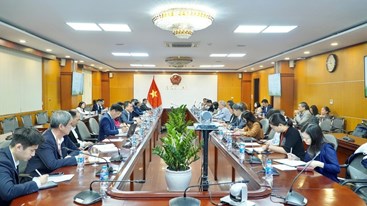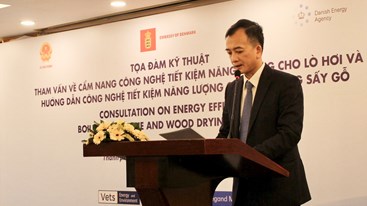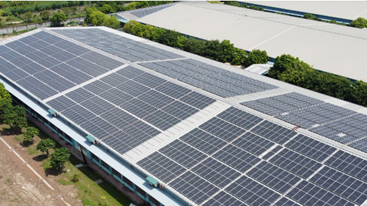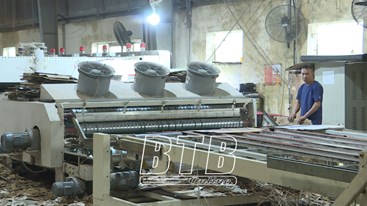Friday, 17/05/2024 | 17:52 GMT+7
The sun power industry in Germany, the world's leader in solar energy, is facing a tough year amid the threat of growing competition from Asia and falling prices. German solar-power companies rebounded last year from a dramatic slump in profit during 2009 as a boom in the sector took shape last year.
Now, however, analysts say the industry could be hit by
another shake up in the coming 12 months as Asian solar businesses step up
their operations and as a consequence increase the pressure on their German
competitors.
''A market correction is necessary,'' said Wolfgang Hummel, a solar industry expert at Berlin's University for Technology and Economics. This year about 80 per cent of the plants built in Germany came from other nations amid concerns of another drop in prices.

Long pampered by hefty government subsidies, the German
solar business has more recently been facing an uncertain future as a result of
moves by Chancellor Angela Merkel's government to wind back state support for
the industry.
But analysts believe that political leaders should not see it as a disaster if one or more solar businesses are taken over or disappear. The key problem threatening the industry is growing competition. ''This requires keeping the costs down,'' said Hummel.
Frank Asbeck, who heads up one of Germany's top solar
companies, SolarWord, believes that in the long-term only two or three of the
nation's firms will survive. Berlin's push to reduce government support for solar power
was a factor helping to fuel this year's boom in the sector.
During the second quarter the industry witnessed unprecedented demand for new sun-powered installations. In June alone installations with a total of about 2 gigawatts were built compared with 3.8 gigawatts for the whole of 2009.
This year between 7 and 8 gigawatts of new solar energy were expected to have been connected to Germany's national electricity grid meaning that the country is now the world leader in sun power. But as the year comes to an end, the subsidy for power from small rooftop solar systems fell by a further 13 per cent. This is likely to further hit demand.
At the same time, production by Asian manufacturers should increase, resulting in a new fall in prices, says Hummel. This could raise questions about how successful the restructuring of the struggling solar equipment maker Q-Cells has been.
Already unable to produce enough and to generate enough profits in 2008, the east German-based Q-Cells company came under mounting pressure at the start of last year as demand slumped. Coinciding with this, new production lines, principally in China, came into operation. The result was a drop in price of about 30 per cent.
This in turn plunged Q-Cells into losses totalling billions of euros and led to the departure of the company's board along with 500 employees at its headquarters. Q-Cells's new management moved quickly to try to pull the company back from the brink by expanding its product range. It also opened a new plant in Malaysia.
As a consequence the group bounced back into the black,
posting a 35-per-cent rise in third-quarter earnings from the second quarter
and a 20 per cent jump in sales. In the meantime, however, Q-Cells's rivals in China have
been enjoying double-digit returns.
The German industry now hopes that their new foreign
operations will help to make up for the fall in sales in their domestic German
market. But with no large solar energy markets in the world apart
from Germany, analysts are not convinced and see this as unrealistic.
This means Germany is likely to remain the industry's focus during the coming 12 months.
mb.com.ph








.jpg?w=367&h=206&mode=crop) Energy efficiency and conservation usage is an important aspect of the national energy development strategy
05/03/2024
Energy efficiency and conservation usage is an important aspect of the national energy development strategy
05/03/2024
 Challenges and Opportunities to promote energy efficiency market in Vietnam
Challenges and Opportunities to promote energy efficiency market in Vietnam
 The Ministry of Industry and Trade requests government agencies to coordinate in organizing Earth Hour 2024
The Ministry of Industry and Trade requests government agencies to coordinate in organizing Earth Hour 2024
 Consultation on Energy Efficiency Boiler Catalogue and Wood Drying Guideline
Consultation on Energy Efficiency Boiler Catalogue and Wood Drying Guideline
.png?w=367&h=206&mode=crop) Request for expression of interest - C2.1.13: Capacity Building on energy efficiency policies development
Request for expression of interest - C2.1.13: Capacity Building on energy efficiency policies development
 Son Ha Co., Ltd, applies energy efficiency and conservation measures
Son Ha Co., Ltd, applies energy efficiency and conservation measures
 Phuc Kien Co., Ltd., is effectively implementing energy-saving measures
Phuc Kien Co., Ltd., is effectively implementing energy-saving measures
 Request for expression of interest - C2.1.12: Independent monitoring of safeguards implementation
Request for expression of interest - C2.1.12: Independent monitoring of safeguards implementation